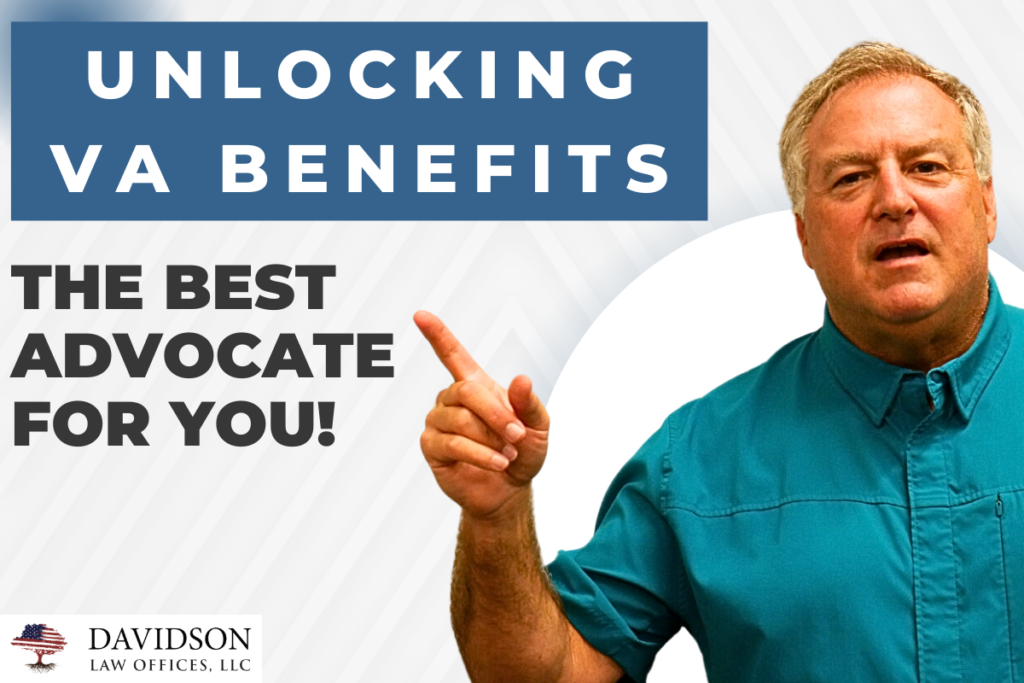When it comes to filing for VA benefits, it can be an overwhelming process. I’ve helped countless veterans navigate the system over the years and get the benefits they deserve. Here I want to talk about what truly defines effective representation before the VA and why having an experienced Veteran advocate is so important, especially when you’re going through such a crucial time in your life. There are many factors that contribute to successfully securing the benefits you deserve, but at the heart of it all, is having the right Veteran advocate in your corner.
Why Do You Need a Veteran Advocate?
Now, you might be thinking, “I can handle this on my own.” And that’s true — many veterans do, and there’s no denying that it can be done. But let me tell you, the road is long, frustrating, and filled with hurdles. If you choose to represent yourself, you’ll need to know the law inside and out, because being an effective Veteran advocate, whether for yourself or someone else, requires a solid grasp of the regulations and processes the VA follows.
However, as much as knowing the law is important, there’s something even more vital: heart. I can’t emphasize this enough. You need a Veteran advocate who cares deeply, not just about the paycheck, but about you, your dependents, and the country you’ve served. Without that emotional drive, you’re unlikely to get the dedication you need to push through the many challenges the VA throws your way.
Having good representation can be the difference between being granted a benefit or being denied. That’s the reality. Whether it’s securing the maximum pension rate or getting a 100% disability rating, effective representation can make or break your case. It’s not just about submitting paperwork and waiting for the VA to act — it’s about going above and beyond.
The VA’s Duty to Assist
Let’s talk about the VA’s duty to assist. The VA is supposed to help veterans with their claims, but don’t make the mistake of thinking that’s all you need. For example, if you’re a combat veteran dealing with a joint injury, the VA might look at your medical records and schedule a Compensation & Pension (C&P) exam. But is that enough? An effective Veteran advocate will dig deeper. They’ll ask you specific questions about your combat experience, help you write detailed statements, and collect buddy statements from those who served with you. They’ll also go after the necessary medical opinions — like a positive nexus statement — that link your condition to your service. This goes far beyond what the VA’s duty to assist entails.
The VA isn’t going to ask the personal, detailed questions that get to the heart of how your injury affects you physically, mentally, and socially. That’s what a Veteran advocate should do. A good representative will develop your claim in a way the VA doesn’t, ensuring nothing is overlooked. This is the type of above-and-beyond service that can make a real difference.
Are VSOs a Good Veteran Advocates?
So, what about veteran service officers (VSOs)? Many veterans choose to work with a VSO from their local county or a veteran service organization. And for a lot of people, this can be a good option. VSOs don’t charge a fee, and they have access to the VA’s computer systems in ways that attorneys don’t. But here’s the thing: while VSOs are great for many basic claims, they often don’t go beyond the minimum required effort. If your case gets complicated, you may find yourself needing more than just the standard duty to assist.
Why An Attorney is the Best Veteran Advocate
On the other hand, an attorney — especially one who is passionate about helping veterans — is going to push harder. Yes, attorneys charge fees, but it’s usually a contingency fee, meaning they only get paid if you win. Attorneys are not funded by taxpayer dollars, so they’re motivated to fight for your case. They’ll represent you before the Board of Veterans Appeals, develop complex claims, and ensure that every possible angle is covered.
A personal example: recently, I was representing a client before the Board of Veterans Appeals. We had submitted over 500 pages of medical records and financial data dating back years. The VA had claimed they “didn’t know” the veteran was married, despite having all the evidence right in front of them. We had to fight to show that the veteran’s benefits were improperly cut off. This is the kind of detailed, intense advocacy that makes a difference — and it’s the kind of fight you need when the VA makes mistakes.
At the end of the day, good advocacy before the VA comes down to three key steps: identifying all the benefits you may be entitled to, gathering the right evidence, and presenting it in a clear and persuasive way. Whether you’re handling your claim yourself, working with a VSO, or hiring an attorney, it’s crucial to make sure that your advocate is doing everything possible to ensure your success. Don’t leave anything on the table — your health, your future, and your family depend on it.
If you’re struggling with your VA claim, I encourage you to consider finding an experienced attorney to be your Veteran advocate. Having someone who will go above and beyond for you can make all the difference in getting the benefits you deserve. Remember, the fight for your benefits is worth it — don’t give up until the fight is done.
Contact Us for Help!
If you need assistance with Veterans benefits, complete this form or give us a call at (229) 226-8183. If you’d like to see this blog in video format, you can watch it below. Please be sure to SUBSCRIBE to our YouTube channel and click the bell notification button so that you’re notified each time we publish a new video.

